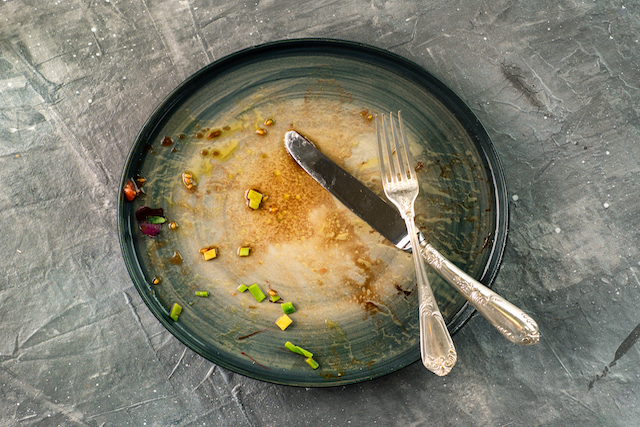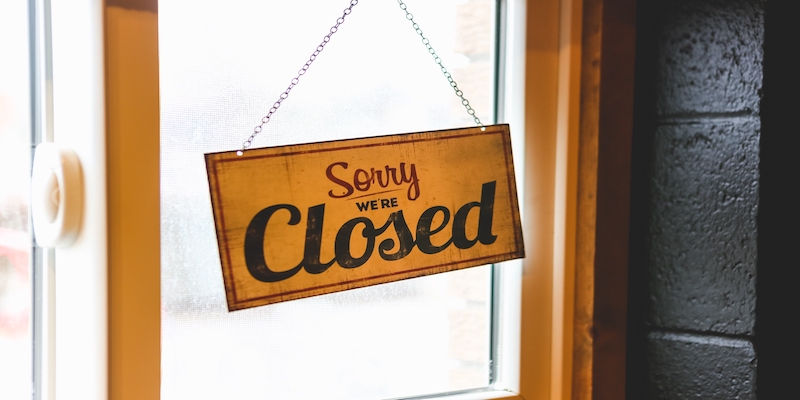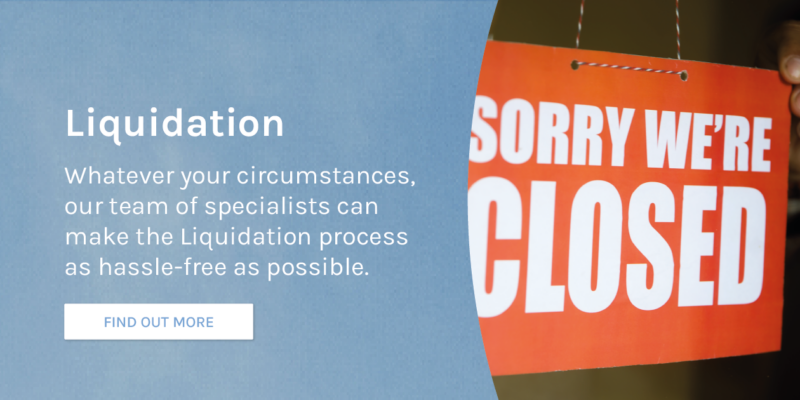The hospitality industry in the UK has always been a vibrant and integral part of the nation’s economy, from traditional pubs to diverse restaurants. However, in recent years, the increasing rate of hospitality closures has become a growing concern. Headlines frequently highlight the rise in restaurant insolvencies and pub closures in the UK, as well as the constant and overwhelming financial struggles of this once-thriving sector.
So, what is driving this alarming trend? Why is the pub and restaurant closure rate rising at such a rapid rate? And most importantly, what can we do to rescue struggling businesses before it’s too late? Read on to learn more.
Why Are Restaurants & Pubs Closing in the UK?
UK pub closures have become particularly prominent throughout the 2020s, with many businesses seriously struggling to stay afloat. Pubs, historically the cornerstone of their communities, face challenges from multiple angles — including rising costs and changing consumer habits. These challenges have led to pub and restaurant insolvencies, posing serious risks to business owners and employees alike — while also impacting punters.
Here are the primary factors behind this concerning trend:
How Customer Habits Are Driving UK Hospitality Closures
Pubs were once central hubs for communities. They offered a comfortable place to relax, socialise, and unwind. However, this cultural norm has shifted significantly over the years. Generational changes, financial uncertainty among the masses (particularly younger generations), and evolving lifestyles and tastes have significantly impacted the footfall at pubs and restaurants around the country.
Related factors contributing to the decline in restaurant business and pubgoers include:
- Virtual Socialising: Technology provides an alternative to the traditional in-person catch up.
- Health Campaigns: There have been prominent anti-drinking initiatives and health legislations introduced in the 2000s to to discourage excessive alcohol consumption.
- Cost Efficiencies: Buying alcohol from supermarkets is much more affordable than visiting pubs/restaurants, which can be the deciding factor when money is tight.
- Shifting tastes: Nowadays, an increasing number of consumers will prefer wine and spirits over beer, affecting traditional pub offerings.
These evolved habits will have led to reduced revenues for many struggling companies, driving up the rate of restaurant and pub closures across the nation.
Financial Pressures Fuelling Pub and Restaurant Insolvencies
Beyond shifting customer habits, there are a variety of financial pressures that have also pushed many businesses to their breaking point. Rising costs and taxes such as business rates, VAT, and alcohol duty have severely impacted profit margins for pubs and restaurants. For example:
- Alcohol duty: Estimated to have generated £12.6 billion in 2023/24. This tax significantly reduces profitability for hospitality businesses.
- VAT: The standardised 20% VAT rate on food and drink sales adds an extra layer of expense.
- Heating and energy costs: Many hospitality businesses will operate out of older buildings, particularly pubs. This can result in a greater cost to maintain and heat them — even more so now energy costs are so high.
Combined, these intense pressures have caused a significant surge in pub and restaurant insolvencies. This leaves many business owners grappling with how to make ends meet and keep the lights on, wondering what they can do to avoid their pub’s closure, let alone consider market opportunities and growth potential.
Pub & Restaurant Closures: A Growing Concern
Britain’s hospitality industry is in crisis. The rising rate of hospitality closures is rapidly reaching alarming levels. This cause for concern stems from the fact that these closures aren’t just lost businesses — they represent cultural and economic shifts that will have a lasting impact on communities, the current and future job market, as well as the broader economy.
Here’s what makes the pub and restaurant closures such a serious concern:
- Community Impact: Hospitality businesses serve as a gathering spot for friends and family. Every restaurant and pub closedclosure represents the loss of a hub of engagement and socialising. This impact is particularly felt in more rural areas as, without a pub, people in smaller villages can be left with little alternative to chat with their neighbours.
- Economic Repercussions: The hospitality industry is a notable contributor to the UK’s economy. However, as restaurant and pub closures continue to increase, more jobs are lost, meaning the more income is lost that would otherwise be trickling through the economy. Additionally, businesses shutting down will have a similar knock-on effect to suppliers, distributors, and other associated industries.
- Strain on Public Finances: Increased hospitality closures will also place a burden on public resources. When restaurants and pub closure rises, the government loses out on revenue from corporation tax, VAT, alcohol duty, and employment payroll taxation. Additionally, higher levels of unemployment usually increases the demand for social support programs.
If your hospitality business is facing financial difficulties, our team of insolvency experts can help. Contact us today to discuss your options to protect your business’s future.
How Can Businesses Navigate Through Financial Distress?
For business owners in the hospitality sector, dealing with insolvency will be incredibly stressful, and may feel like an insurmountable challenge to try to overcome. However, from restructuring to debt negotiation and beyond, it’s important to know that there are some recovery options to explore before considering company closure.
Here are some potential solutions to your current financial situation:
Restructure Your Business
A company restructure can help to streamline operations, cut unnecessary expenses, and refocus on the most profitable areas of the business. This process may involve:
- Renegotiating supplier contracts
- Closing unprofitable locations
- Restructuring your workforce to align with your current needs
Engaging with a professional insolvency expert can be critical to ensuring you identify the best strategy to maximise your recovery and restructuring ,helping you to avoid an unneeded restaurant/pub closure.
Creditor Negotiation
Open and transparent lines of communication with your creditors often goes a long way towards securing more manageable repayment terms. This might include reducing interest rates on the debt, extending payment deadlines, or even consolidating debts.
Many creditors will be willing to negotiate in order to avoid potentially missing out on repayment altogether, particularly if the negotiation process is being led by an experienced and trusted insolvency advisor.

Company Voluntary Arrangement (CVA)
A Company Voluntary Arrangement is a legally-binding agreement made between a company and its creditors pertaining to the repayment of debts over a set period of time. This option of recovery allows you to retain full control of the business while restructuring your repayments.
This can be useful as it provides your hospitality business with a good chance to recover without facing immediate liquidation.
Utilise a Moratorium Period
An insolvency moratorium will provide a temporary period of protection against creditor action while you assess your situation and your best options.
This valuable breathing space will allow you to open a dialogue with an insolvency professional and develop a feasible plan to address your current financial situation.
Securing Additional Funding
In some cases, alternative financial solutions (such as a short-term loan or bridging finance) can provide the needed liquidity to stabilise operations. Any additional funds generated can be used to pay off urgent debts or invest in order to increase revenue.
It’s important to note that any new funding should be carefully considered, and align with a sustainable recovery plan. This is vital as going down this route without considering your options can actually worsen an already difficult financial situation.

Seek Expert Insolvency Advice
Navigating serious financial issues is always going to be complex, and highly stressful, this is particularly true in highly competitive sectors like manufacturing, trade/retail, and hospitality.
Prompt consultation with an insolvency professional can help you to identify the most effective solutions, tailored to your exact circumstances and needs. This will help to reduce your levels of stress, and maximise your odds of a successful recovery. Don’t become another in a far too long list of restaurant and pub closures.
Voluntary Liquidation
If closure is deemed to be unavoidable, voluntary liquidation may offer you the most structured way possible to wind your company up. This can help to ensure that all assets are distributed properly, and could even result in some money being returned to the key stakeholders.
The Future For UK Hospitality
The landscape of the UK hospitality industry is evolving, with some pubs and restaurants managing to adapt to the ever-changing environments by innovating, rebranding, or diversifying. However, others will still face significant challenges as the pub closure rate rises and restaurant insolvencies become more commonplace.
Businesses in such positions must act swiftly and seek professional advice before it’s too late.
After all, getting a clearer understanding of your options — whether that’s in the form of restructuring, insolvency, or liquidation — can provide you with some valuable direction to help navigate through turbulent times.
Inquesta are specialists when it comes to helping directors from a wide variety of industries and specialities. If you are facing serious financial difficulties, we are here to help.
Don’t wait for the situation to worsen. Contact Inquesta today to discuss how we can help your business navigate through challenging times.




